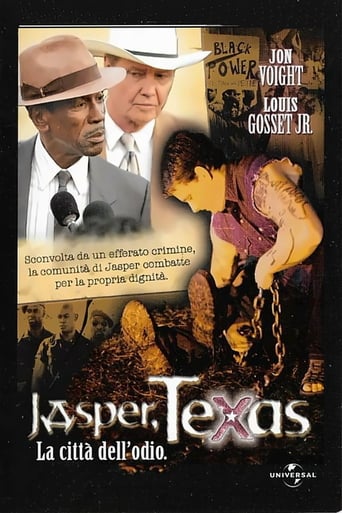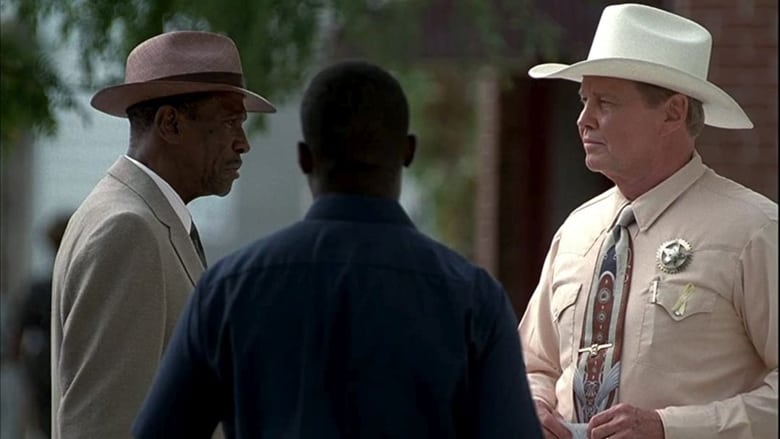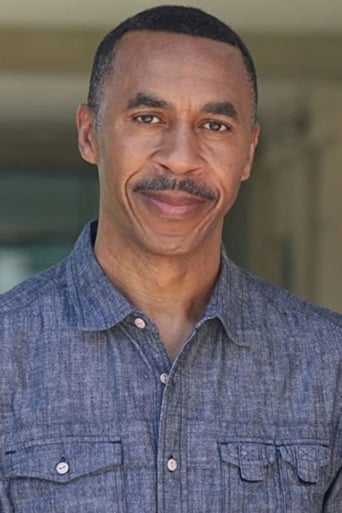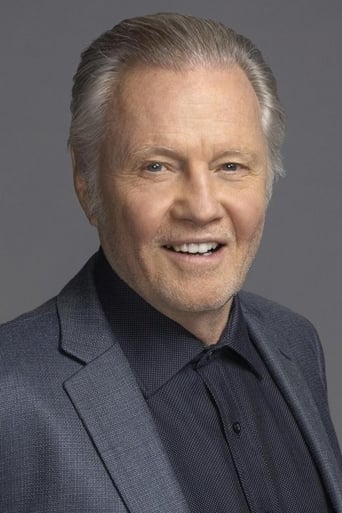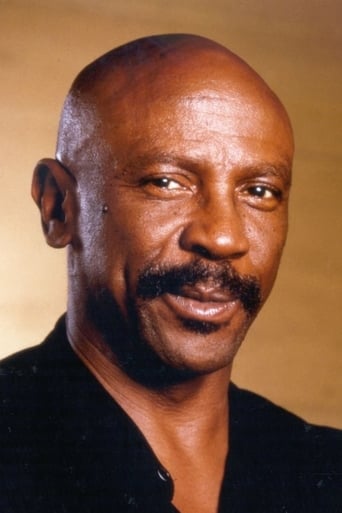Jasper, Texas (2003)
In 1998, three white men in the small town of Jasper, Texas, chained a black man to the back of their pickup truck and dragged him to his death. This film relates that story and how it affected all of the residents of the town, both black and white.
Watch Trailer
Cast


Reviews
A Masterpiece!
Although it has its amusing moments, in eneral the plot does not convince.
what a terribly boring film. I'm sorry but this is absolutely not deserving of best picture and will be forgotten quickly. Entertaining and engaging cinema? No. Nothing performances with flat faces and mistaking silence for subtlety.
There's no way I can possibly love it entirely but I just think its ridiculously bad, but enjoyable at the same time.
I live in Jasper, Texas. I was born and raised here, and this was one inaccurate movie. I liked the cast of characters, but they definitely made the town look like a small hick town that is not current, and it is nothing like that. I thought that Jon Voight, and Louis Gossett Jr. gave great performances. I also didn't like the fact that they showed the dragging so violently. Many of us here were reminded of how horrible it was. It is behind us, and that is where we would like to keep it. Overall I did not enjoy this movie. I have seen it twice, and I really doubt that I will watch it again. I feel that many people would be greatly surprised if they ever came to Jasper. It is nothing like it is portrayed in this movie.
I was a junior in high school when the true story behind Jasper occurred, but I don't remember much of it. Until I saw this movie, the horrific nature of the crime hadn't hit me, and I became disgusted with the racism that does still exist. While this was certainly no blockbuster, I found this movie meaningful and it really delivered a message to me.Also, not to make light of the story, I'm from Deep East Texas, and I have NEVER heard anybody from the area use that Deep South accent. I agree that we do have a distinctive accent, but I am somewhat offended that somebody else could review this movie and say that the accent was actually authentic--that is as far from the truth as you can get. We don't talk like the characters on "In the Heat of the Night," we talk like rednecks--and to us, that's not an insult.
What a horrible incident! I don't agree with my state's (over)use of the death penalty, but somehow, I'm just fine with the fact that the perpetrators of this crime are going to get the death juice in a few years. The movie portrayal of the incident is sensitive and well-done. Louis Gossett, Jr. is awesome in this movie, which is an added bonus. I had an opportunity to be in the same room as R.C. Horn (long story), and he's almost a dead-ringer for Louis Gossett, Jr. Anyway, a great movie about a horrible incident.
Anyone looking for a typical true-crime drama with suspenseful courtroom scenes -- the kind of thing that premium TV channels do fairly effectively -- won't find it here. This is a low-key, sometimes leisurely look at racial relationships in a small Texas town in 1998.The crime, which was true enough, is utterly horrifying: a black man dragged for no reason for miles behind a speeding pick-up truck by three young white men.So the movie is not a mystery. It's not a courtroom drama either. The scenes in court are rather quickly done. Instead we have John Voight as the slow-moving thoughtful county sheriff and Lou Gossett, Jr., as the nervous mayor of Jasper. The film deals with how the crime brings to the surface of this ostensibly placid little community the racial tensions that exist in its emotional infrastructure. The tensions are symbolized by a broken-down weed-covered wire fence that segregates the cemetery into black and white areas."We've got good folk here," says Gossett, looking out his office window. And indeed the police chief is white and the mayor and many members of the city council black, and law enforcement is thoroughly desegregated, and everyone is polite and friendly to one another. But the murder confuses everyone, mixes things up in an unpleasant way, generates ideas that make people uncomfortable, prompts them to say things and to behave in ways that they otherwise would not have done. But everything is okay in Jasper, Texas, say the residents, while Byrd, the victim, is being buried in the black section of the cemetery. Frantic journalists come and the black panthers descend upon the town, fully armed, followed by the KKK. After all this has gone down, the town council, the mayor, the sheriff, and their families are having dinner al fresco with candles guttering in the breeze. Everyone is puzzled about what is going on. And in an attempt at reasoned discourse, both the blacks and the white people reveal prejudices that had no one seems to have been aware of, either in themselves or the other parties, or at any rate had never acknowledged. The dinner scene ends with Voight and Gossett sitting across the table from each other -- neither of them angry, both of them bemused and sad.You can see through the rusty wire fence, half hidden by vines, but it's still there. No easy answers are offered. None are possible. It isn't simply a white problem. It's a problem for blacks too, a population in which what was once a defensive solidarity has come to take on a function of its own. And it's a problem over much of the world. Take a look at Rwanda ten years ago. Or the "ethnic cleansing" in the former Yugoslavia. This is one tough nut to crack, as the movie acknowledges, although there is no question but that this outbreak was "started" by a couple of renegade Aryan supremacists. Does the movie end happily? Surprisingly -- for a Hallmark Production -- the answer is a firm "yes and no." The wire fence is torn down, the murderer convicted and sentenced to death. (The first time a white man has been condemned for killing a black man in Texas since 1854 in a case which was a dispute over who the slave belonged to.) Yet, at the end, Gossett has lost his pension and is out of office.There's craftsmanship evident in this film. The writing isn't bad. Neither are the performances. One scene is particularly poignant. During the trial we have seen the father of the murderer seated in court, a stereotypical redneck cracker peckerwood with a creased mean-looking face, in a wheelchair with cannulae in his nose, his expression a sort of fixed glower. The victim's father is in court too. An overweight sodden-seeming black man with very dark skin and a sad face. When the trial is over, the son sentenced, and everyone has left the court except these two men, the old white guy wheels himself over and pauses in front of the black guy. We expect a confrontation, but we don't get it. The father of the white murderer apologizes abjectly and clumsily to the father of the black victim, saying, "I don't know how I could of raised a boy like that." The old black man grasps his arm lightly and replies, "It ain't your fault. We're just two people who lost our boys." It's a touching moment.The director seems to need more seasoning. There are violent inserts, several seconds each, of the victim being dragged behind the truck, screaming, the screen red and black. It's as if someone had thought to throw them in because the story needed juicing up. But the scenes are more distracting than shocking; they interrupt the flow of what is a fairly good film. And the lighting needed more thought than it was given. Why should a courtroom be so poorly lighted that we can barely make out the faces of the spectators, even in close up? The score fits the rest of the film, and the location shooting, which I take to be Canadian, is unevocative. These problems aside, this is a rather intelligent treatment of a fairly complicated problem, pinned down as America's Great Social Divide by Gunnar Myrdal and others long ago. We can always end a war, one way or another, but pulling down that wire fence is a much more difficult job.

